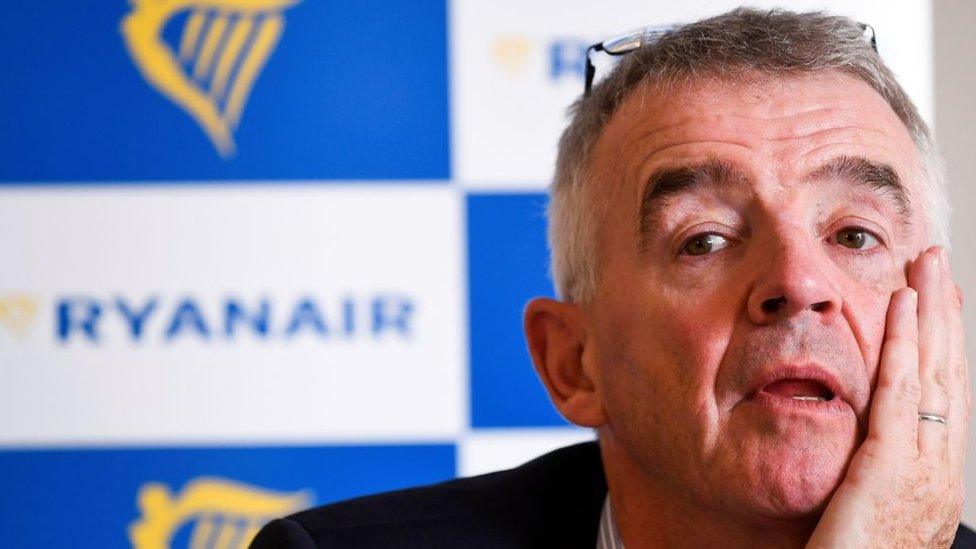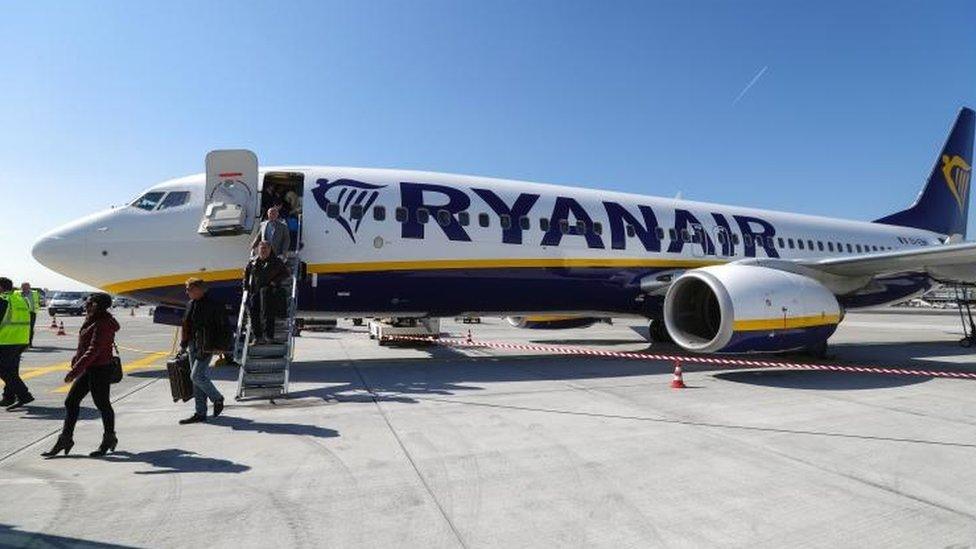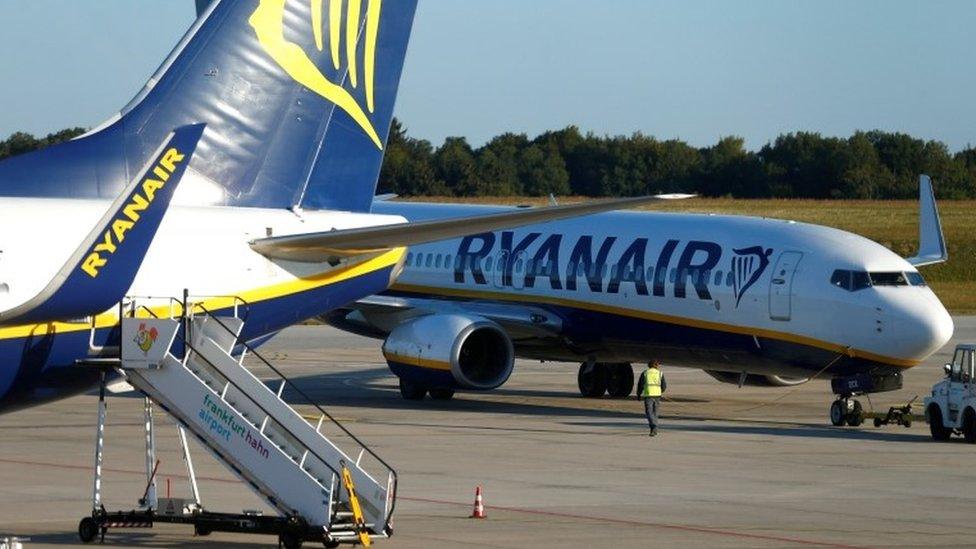Ryanair expects to win in airline 'fare wars'
- Published
- comments

Michael O'Leary says profits could suffer for the next couple of years
Ryanair chief Michael O'Leary has said he expects the airline to benefit from any price war in the industry.
Mr O'Leary said "artificially low prices" and "attritional fare wars" could dent profits for a year or two.
He was speaking after the airline reported that profits fell by nearly a third last year to €1bn (£880m) because fuel costs rose and fares fell.
Profits at Europe's biggest discount airline might also be lower this year, as fares could fall by up to 2%.
For last year, Ryanair's average one-way fare was €37, down 6%, although this was offset by spending on services such as hotels and car hire.
For the current financial year, the carrier said it was "cautious" on pricing and had "zero" visibility for the second half of the year.
It said that while bookings in the first half of this year were slightly ahead of last year, "fares are lower and we expect this trend will continue through 2019".
Mr O'Leary said: "Frankly, if we are in a period where there's going to be attritional fare wars for a year or two that's good for Ryanair... as... we have the lowest cost base... profits will suffer for a year or two and I think that is what our shareholders should expect.
"However it is clear in my mind that within the next four to five years you are seeing the emergence of four or five large European airline groups," he said.
He referred to Ryanair, Lufthansa, IAG (owner of British Airways), Air France-KLM and, probably, Easyjet.
Mergers of other airlines would lead to "some upward pressure on pricing," he said.
"[Fares] will begin to rise again because they are artificially low at the moment," Mr O'Leary said.

Despite a 7% increase in passenger numbers, earlier this year Ryanair was named the UK's least-liked short-haul airline for the sixth year running in a survey by consumer body Which?.
Neil Sorahan, Ryanair's chief financial officer, told the BBC that the airline did not spend too much time worrying about surveys and that the most important thing was being on time.
"Our customers enjoyed an average fare of €37 which was down 6% on last year. At the same time, however, they continue to spend money on our ancillary products [car hire etc] which helps offset that," he said.
Mr Sorahan said there was too much capacity in the market, and pointed to a wave of airline failures - such as Primera, Flybmi and WOW - caused by higher oil prices and lower fares.
Last week, EasyJet reported a loss of £275m in the six months to the end of March, compared with a £68m loss a year earlier, while troubled travel operator Thomas Cook is attempting to sell its airline to plug a gap in financing after reported a £1.5bn half-year loss.
'Long-term winner'
Fuel prices are also an important factor to airline profitability and Ryanair said its bill for this year is expected to rise by €460m.
The airline said its forecasts will also depend on last-minute fares and any impact from Brexit, but it estimated that profits could range between €750m and €950m.
Ryanair is delaying deliveries of five of the Boeing 737 Max planes, which have been grounded because of two fatal crashes, but said it had the "utmost confidence" in the aircraft.
The delay to deliveries from the spring will lead it to cut capacity by one million passengers this year, but it ultimately expects the planes to drive down costs and, Ryanair said, lead to lower prices for passengers.
The airline expect the 737 Max planes to return to the air in July or August in the US, and September or October in the EU.
Ryanair also announced it was buying back €700m of its shares, which analysts at Liberum said would support the share price in the short-term despite the "disappointing" guidance on profits for this year.
"Ryanair remains the long-term winner in the European airline industry, based on its leading market position, extensive network, low unit costs and strong balance sheet," Liberum said.
"We see tougher market conditions in the short term as positive for the stronger airlines in the long term, since this clears out weaker competitors and aids consolidation in the market."
Shares in Ryanair fell 6% in early trading, before recovering to stand 1% lower.
Ryanair's profit figure excludes the loss of €139m from the Austrian airline Lauda it took over last year.
- Published26 March 2019

- Published4 February 2019
